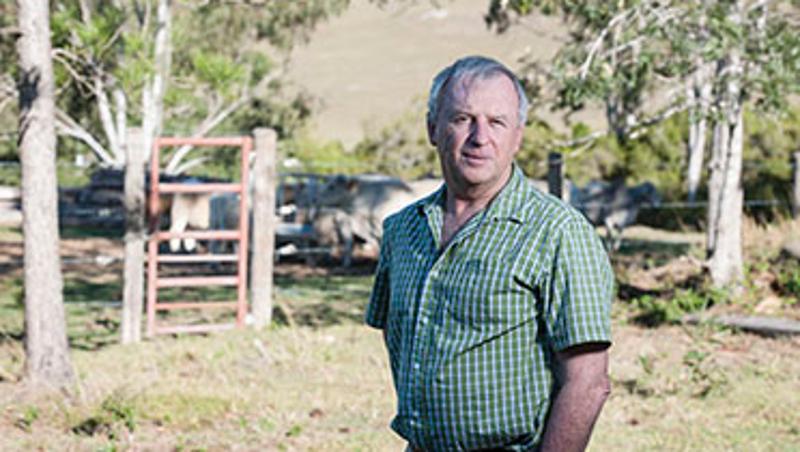
The Federal Government must quickly find a sustainable way to help farmers facing a debt crisis as a "grim" future looms, a QUT economist has warned.
Dr Mark McGovern, a senior lecturer in QUT Business School, spoke at the Last Stand at Winton, held last week, to draw national attention to the plight of drought-affected and debt-laden producers across Australia's agricultural sectors.
He warned farm finances painted a "grim picture" and urged the government to offer sensible policies and not just pile more debt on to struggling farmers.
"Proper reconstruction involves restructuring debts and supporting producers to get back on their feet," Dr McGovern said.
"The Federal Government's offer of an extra $100 million in concessional loans adds more debt, which is the last thing most farm businesses need."
Dr McGovern said it was important the government did not dismiss the potential of an Australian Reconstruction Development Board (ARDB). He is one of the brains behind the ARDB, which would sit within the Reserve Bank and foster the reconstruction of faltering enterprises in an agricultural sector saddled with more than $60 billion in debt.
"Comments that the government is doing just what an ARDB would do are just wrong," Dr McGovern said.
"ARDB activities aim to restore balance sheets, build viability and allow some time. The current response from Canberra is to just add cheaper debt, and then only for some. It does not address core problems.
"Governments need to enact effective options already available under the Rural Adjustment Act. Much more could be responsibly done. Why the existing Act has not been used responsibly needs explanation.
"Farmers survived the millennial drought more than a decade ago with support that aimed to maintain capacity. Grants were made. Debts were kept manageable sector wide. Effective adjustment measures need to be rolled out now."
Dr McGovern said the latest analysis indicated the situation was "even grimmer that suggested in reporting of the ABARES report, and bank reporting is incomplete".
"Still, even on this limited analysis, farm businesses with negative farm cash income in 2013-14 were estimated by ABARES at 58 per cent in the north Queensland Gulf region, 40 per cent in south west Queensland (with the four border corner shires omitted) and 55 per cent in north west NSW," he said.
"Average farm income was at or below zero for all three regions and interest servicing was at or near historic highs in all three.
"The Last Stand at Winton was told beef prices would be up next year but everyone there knew it would be at least three years before saleable stock were available. Most producers are just trying to keep their core breeding stock alive.
"Meanwhile debts are rising and a further 5 per cent rise in debt is projected nationwide in the coming year. Obviously incomes are inadequate across the nation but the Agriculture Green Paper ignores Australian farm incomes."
Dr McGovern urged all sides of politics to work with producers, community leaders and agribusiness bankers to develop an effective plan to avoid further disaster.
"Our rural communities are really suffering and this is too serious for it to become about competing political interests," he said.
"The Last Stand was sobering. People told heart-breaking stories of being forced off lands that has been in their family for generations. Time and money are running out. There is anger and growing alarm, including among previously safe graziers.
"Change needs to happen now."
Media contact:
Rob Kidd, QUT Media, 07 3138 1841, rj.kidd@qut.edu.au
After hours, Rose Trapnell, 0407 585 901


